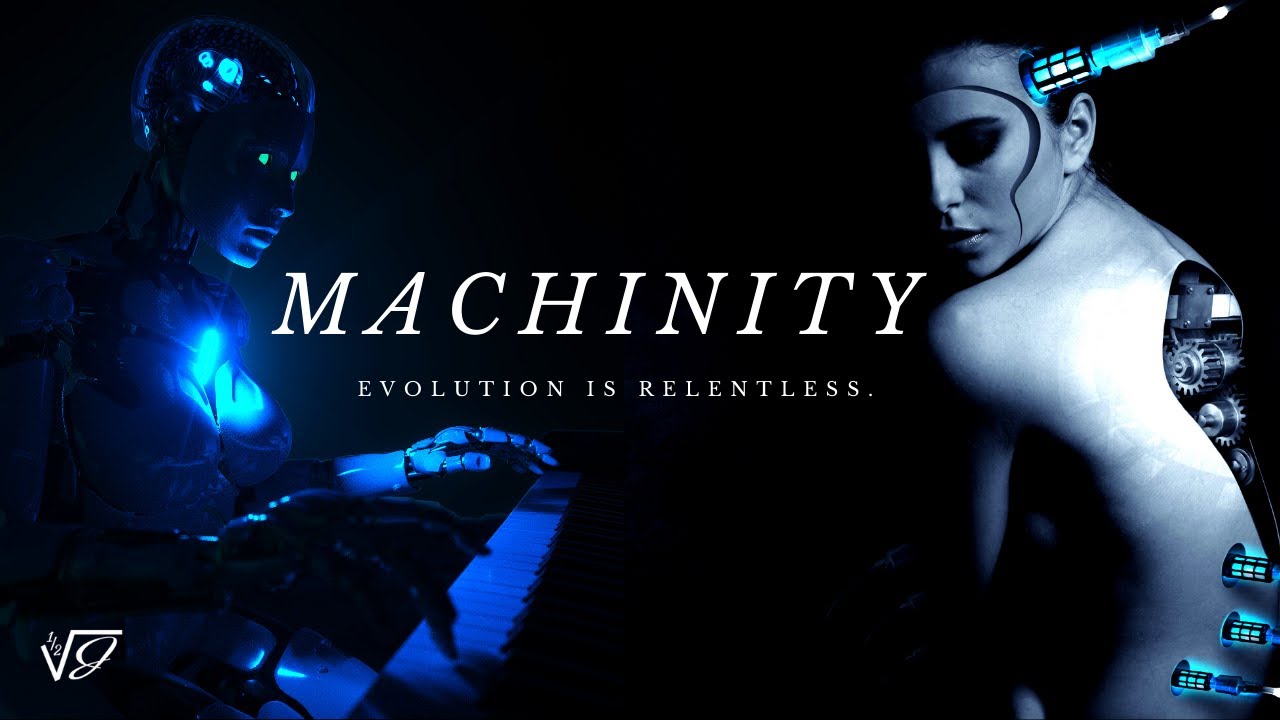Richard Feynman: Can Machines Think?
Summary
TLDRIn a 1985 lecture, Richard Fineman explores the concept of artificial intelligence, addressing whether machines can think like humans and their potential to surpass human intelligence. He argues that while machines excel in specific tasks like chess and arithmetic, they struggle with pattern recognition and complex problem-solving, areas where humans naturally excel. Fineman also discusses the limitations and potential of AI, including heuristic approaches to problem-solving and the challenges of creating truly intelligent machines.
Takeaways
- 🧠 Richard Fineman expresses skepticism about machines ever thinking like humans due to the inherent differences in materials and processes.
- 🤖 He acknowledges that machines can be more efficient in specific tasks like playing chess, but this doesn't equate to human-like intelligence.
- 🔢 Fineman highlights that machines perform arithmetic differently and more efficiently than humans, but the fundamental process remains the same.
- 🔍 The script discusses the difficulty for machines in pattern recognition, such as identifying individuals or objects in varying conditions, which humans can do instinctively.
- 🚀 Fineman uses the analogy of transportation to illustrate that machines, like airplanes, achieve goals differently from the natural models they are inspired by, such as birds.
- 👀 He points out that humans constantly seek to find tasks where they can outperform machines, emphasizing the unique capabilities of human cognition.
- 💡 The lecture touches on the idea that computers can discover new ideas and relationships, but it's a complex process that doesn't happen spontaneously.
- 📈 Fineman discusses the potential for computers to improve in areas like weather prediction by processing more data and variables than humans can manage.
- 🛠️ The script mentions the use of heuristics in computer programming, where machines can 'learn' from the effectiveness of different strategies to solve problems.
- 🤷♂️ There is an emphasis on the limitations of machines in tasks requiring nuanced understanding, such as recognizing complex patterns in fingerprints.
- 🔧 Fineman shares anecdotes about bugs in early AI systems, illustrating the challenges in developing truly intelligent and adaptive machine behavior.
Q & A
What is the main topic of the lecture by Richard Fineman?
-The main topic of the lecture is the capabilities and future of artificial intelligence, specifically addressing whether machines can think like humans and be more intelligent than them.
What is Richard Fineman's stance on machines thinking like human beings?
-Richard Fineman believes that machines will not think like human beings because they are made of different materials and operate in different ways.
According to the lecture, in what area could machines potentially surpass human intelligence?
-Machines could potentially surpass human intelligence in areas such as playing chess or performing arithmetic, where they can process information faster and more accurately than humans.
What is an example of how machines can be more efficient than humans in certain tasks?
-An example given is that machines can process and remember large sequences of numbers more efficiently than humans, who may struggle with even a moderate number of digits.
What is the comparison made between human recognition abilities and machine capabilities in the lecture?
-The lecture compares human recognition abilities, such as identifying people by subtle physical cues, to machine capabilities, noting that machines currently struggle with pattern recognition in varying conditions.
What is the significance of the 'heuristic' approach in machine problem-solving as discussed in the lecture?
-The heuristic approach allows machines to explore different possibilities and learn from them, which can lead to discovering new and effective solutions to problems, similar to how humans might use trial and error or analogy.
What is the issue with trying to make machines replicate human thought processes exactly?
-Replicating human thought processes exactly in machines could be counterproductive because human processes are often slow, error-prone, and not always the most efficient method for problem-solving.
What is the potential for machines in the field of weather prediction according to the lecture?
-Machines have the potential to predict the weather more accurately and efficiently than humans due to their ability to process large amounts of data and perform complex calculations quickly.
What is the concept of 'heuristics' in the context of artificial intelligence as mentioned in the lecture?
-Heuristics in the context of AI refers to strategies or 'rules of thumb' that guide the problem-solving process, allowing the machine to make decisions or find solutions more effectively.
What are the limitations of machines in recognizing patterns compared to humans, as discussed in the lecture?
-Machines have limitations in recognizing patterns due to factors like changes in lighting, distance, and angles, which are easily managed by humans but complicate the machine's ability to perform pattern recognition consistently.
What is the potential downside of machines developing their own heuristic methods, as illustrated by the bugs in the lecture?
-The downside is that machines might develop inefficient or irrelevant heuristics that do not contribute to solving the problem effectively, which can be a result of the machine's learning process going awry.
Outlines

This section is available to paid users only. Please upgrade to access this part.
Upgrade NowMindmap

This section is available to paid users only. Please upgrade to access this part.
Upgrade NowKeywords

This section is available to paid users only. Please upgrade to access this part.
Upgrade NowHighlights

This section is available to paid users only. Please upgrade to access this part.
Upgrade NowTranscripts

This section is available to paid users only. Please upgrade to access this part.
Upgrade NowBrowse More Related Video

Can Artificial Intelligence Make Us Better Humans? with Neil deGrasse Tyson & Ray Kurzweil

What Does the AI Boom Really Mean for Humanity? | The Future With Hannah Fry

Can Artificial Intelligence (AI) Replace Human Beings? | Sadhguru Answers

Q&A with Geoffrey Hinton

What Is Artificial Intelligence? | Artificial Intelligence (AI) In 10 Minutes | Edureka

The Rise of Machines: Artificial General Intelligence (AGI)
5.0 / 5 (0 votes)